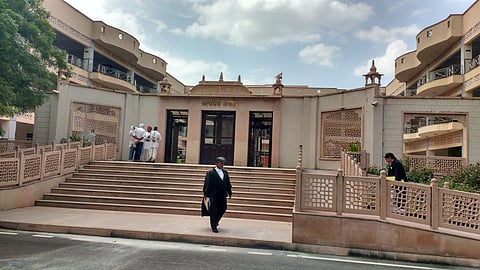
- News
- Columns
- Interviews
- Law Firms
- Apprentice Lawyer
- Legal Jobs
- हिंदी
- ಕನ್ನಡ

Can there be a revision of an interim order for maintenance? The Rajasthan High Court has, within a span of six months, passed two conflicting orders in this regard.
Interestingly, it is the same Bench of Justice Pankaj Bhandari which has passed both the orders.
In its order of January 25, 2019, the High Court held that an interim order for maintenance can be subject to revision. The order states that interim maintenance orders will not attract the bar imposed on them under Section 397(2) of the Code of Criminal Procedure (CrPC). It added that revision sought in interim orders will, thus, be maintainable.
The Single Judge Bench examined the scope of the term “interlocutory order” and placed reliance on the decisions of the Supreme Court and the Allahabad High Court for the same. The Court also highlighted the provisions of the Protection of Women from Domestic Violence Act, 2005 that allow for a revision of a maintenance order.
The Court, thus, arrived at the conclusion that interim orders passed in cases of maintenance are not barred by Section 397 of the CrPC and revision petitions are maintainable. Advocate Sehban Naqvi had appeared for the petitioner in this matter.
This decision, however, is diametrically opposed to a previous order passed on the same question of law, by the same judge.
In August 2018, Justice Bhandari had held that interim orders for maintenance can continue till the final adjudication of applications filed for maintenance by a spouse under Section 125 of the CrPC.
The 2018 judgment had laid down that a revision of interim order is not maintainable, considering that an interim order does not give rise to rights and liabilities of the parties and shall continue only till a final order is passed. Therefore, a revision petition in this regard will not be maintainable. It was held,
“The concept of an interlocutory order qua the revisional jurisdiction of the High Court was completely foreign to the earlier Code, subsequently due to flooding of revision petitions before the High Court, Law Commission suggested revolutionary changes and consequently, in the new 1973 Code, restriction was imposed under Sub-section (2) of Section 397 Cr.P.C., wherein the powers of revision of the High Court against interlocutory order were taken away as it was found to be the main contributing factor in the delay of disposal of criminal cases.”
While deciding on this question in 2018, Justice Bhandari noted that there were differing views expressed on the question of maintainability of revision petitions in case of interim orders.
While the Punjab & Haryana High Court has held that interim orders are interlocutory in nature and review in the same cannot be allowed, the High Courts of Madhya Pradesh, Calcutta and even Rajasthan, have held that interim orders are interlocutory and attract a bar on revision. Justice Bhandari stated,
“Since the interim maintenance order continues till the final decision of an application under Section 125 Cr.P.C. and the decision of an interim application does not decide the rights and liabilities of the parties, it cannot be considered to be a final order so as to give rights to the parties to move a revision petition. Hence, revision petition is not maintainable.”
Read the 2019 order:
Read the 2018 order: